- Home
- Jeremy Robinson
Viking Tomorrow
Viking Tomorrow Read online
VIKING TOMORROW
By Jeremy Robinson
& Kane Gilmour
Description:
The world is barely holding on. A century after a series of apocalyptic events, humanity is struggling to survive. In the frigid north of Scandinavia, people have returned to farming, fishing, and fighting amongst themselves, living as their ancient Viking ancestors once did. But their days in the world are numbered.
The last tattered remnants of humankind have become barren. No new live births have occurred in over a decade. When the remaining population dies, the human race will end.
When a call goes out to the greatest fighters in the North, men capable of surviving a long journey and crushing any obstacle in their path, a young female berserker named Val takes up the challenge. With her eyes hidden behind red-lens goggles, she violently proves her worth, seizes control of a small band of fellow berserkers, and heads south to claim her prize: the first glimmer of hope for a tomorrow.
Traveling deep into the wastes of Europe, surrounded by dangerous landscapes and the mutated creatures that populate them, they find themselves pursued by enemies determined to stop them at all costs. Attacked from without and betrayed from within, Val fights for the future, and if she fails, humanity fails along with her.
Jeremy Robinson and Kane Gilmour imagine a world that has survived multiple apocalyptic events, mixing the savagery of the History Channel’s Vikings with the frenetic chase scenes of Mad Max, resulting in a high-octane battle raging across Europe with the fate of humanity at stake.
VIKING TOMORROW
Jeremy Robinson
and Kane Gilmour
Older e-reader? Click here.
Table of Contents
Prologue
1
2
3
4
5
6
7
8
9
10
11
12
13
14
15
16
17
18
19
20
21
22
23
24
25
26
27
28
29
30
31
32
33
34
35
36
37
38
39
40
41
42
43
44
45
46
47
48
49
50
51
52
53
54
55
56
57
58
59
60
61
62
63
64
65
66
67
68
69
70
71
Epilogue
Epilogue II
A NOTE FROM KANE
ACKNOWLEDGMENTS
ABOUT THE AUTHORS
ALSO by JEREMY ROBINSON
ALSO by KANE GILMOUR
Kane dedicates Viking Tomorrow to:
Michelle, the bravest, strongest woman I know,
whose love has seen me through the wars,
and whose side I will be at until we reach Valhalla, and after.
Prologue
The girl saw her pale face reflected in the creature’s slick eyes. She smiled at the sight, and then giggled. The harbor seal, a foot longer than the girl was tall, grunted and huffed with appreciation, then it nuzzled closer to her, as it had done all week when they met by the hole in the ice.
The young girl’s mother, a broad, powerful woman, sat nearby on a log. She was repairing a shirt with a needle and thread, as the girl played with the seals. At only six years old, the girl could swim nearly as well as the creatures that emerged from the hole each afternoon to laze in the scant Arctic sun. Her mother wasn’t worried about her.
There were usually three or four seals, and the girl loved to play with them. She had begged her mother to create a fur hood she could wear, so she would better resemble the sleek-skinned animals. It had taken some time, but eventually her mother had presented her with a smooth, brown, full-body garment. She rarely took it off now. It was skin tight, and kept the girl’s long blonde hair out of her face, but it wasn’t the warmest article of clothing she owned. Still, she would happily shiver if it meant playing with her friends.
Unlike many other creatures the girl had seen, these seals were unaffected by sickness or deformities. Her parents explained that most of the animals had been changed by the wars and disasters of the old times. The girl didn’t know much about those times, but as long as the seals had only one head each and no scary fangs or claws, she was fine with them.
The most daring seal—the girl had named him Jostein—hooted with pleasure that his new human friend was once again on the ice. While the others would come close and scamper around her, Jostein was the only seal that would touch her or allow himself to be touched.
“Mama,” the girl said, “can I swim with Jostein?”
“Wait,” her mother said, the woman’s voice unusually terse and devoid of humor.
The girl turned to see her mother’s face was drawn. She was squinting back at the shore.
The girl whipped her head around toward their home, a small two-bedroom wooden hut on the shore of the frozen bay. Her father was chopping timber with a wood-handled ax, as two men arrived on vehicles the girl had never seen before. The machines were longer than a man, with skis on the front end and treads at the rear. The sound of the vehicles buzzed out across the iced-over sea, reaching her ears only after the men had arrived at her family’s log pile.
“Wait,” her mother hissed in a whisper.
A sudden dread filled the girl. She did not know what the problem was—most of the visitors they had, though infrequent, were welcomed heartily. She determined to stay still and alert, until her mother told her otherwise. At her side, Jostein lifted his head and peered toward the house. The girl knew his limited surface eyesight was not up to the task, but his keen hearing and sense of smell had detected the vehicles’ arrival before she had.
The two strangers dismounted their mechanical steeds and pulled long swords from their belts. The men moved with purpose toward her father, who was now brandishing his woodcutting ax like a weapon.
“Into the water,” her mother urged her. “Get in and go under with your friends. Stay under as long as you can, and then stay under longer.” The woman started running toward the shore, her mending dropped on the snow-crusted ice.
The girl turned her head toward the two-foot-wide hole cut into the surface, its black water already disturbed by the harbor seals, who had detected trouble and slid into the hole, nose first, with hardly a ripple. The only sound was their bellies scraping across the ice. Jostein waited for her, looking back and barking softly.
She turned toward the home just once more. The two men swung their blades at her father. An arc of brilliant crimson shot up and over their heads.
Her heart seized as a sword struck her father again. Her mother was still running for the shore, screaming.
The girl turned back to the hole and, like the seals, slid in head first.
The shock of the cold water was like being slammed in the chest with a log. There was hardly enough light to see, but she spotted the dark shadows of seals swimming around her. The cold permeated her thin
seal-skin hood. Her muscles felt tight and unfamiliar as she tried to swim while blocking the vision of her father’s blood from her mind’s eye.
She turned upward toward the deep hole. The ice was over a foot thick. As she looked up at the circle of blue sky beyond it, Jostein slipped into the hole from above, blocking out the light with his bulk. He plunged into the water, and immediately glided to the girl, winding his body around her like a snake. She knew he was smart enough to understand the danger. He was being protective.
The blackness around her did not scare the girl at all, but the terror of seeing the men attacking her father, and the fear of what they might do to her mother, filled her small mind. She had no fears for herself. She did not think the men would come out to the ice for her, and she was wearing her seal costume anyway. If they had even looked out across the ice and seen her mother, they most likely would have thought the girl was one of the seals.
She treaded in place under the water, her head just feet beneath the hole in the ice. If the men came and looked into the water, they would see black and the reflection of the porcelain blue sky above them. Nothing more. But she would be able to see them.
If they came soon.
Her mother had told her to stay under as long as she could, but she was running out of air now. It had been over three minutes. She could usually hold her breath for three to four minutes, but the last part always hurt her chest. When her circular view of the sky started to dim at the edges, she would have to emerge. For now, she waited, her arms tired and flapping slowly to keep her from sinking.
Jostein swam around her still, nuzzling her gently. She could tell he was worried. The other seals had already fled. He stopped in front of her, looking her in the eyes. He looks sad, she thought. Then he turned and swam away.
Her lungs burned.
She was alone.
The brutal cold constricted her muscles, and she knew she didn’t have long before a vicious cramp would set in.
She had to have air.
The girl moved up slowly, and tilted her head backward, so her lips and nose would be the first—and only—things that surfaced. As soon as she felt the frigid air on her mouth, she exhaled the last air in her chest and gulped in several fresh lungfuls. Her face was still a foot lower than the surface of the ice, hidden from the view of anyone on shore.
But her curiosity and fear got the better of her. She reached up, grabbed the smooth edge of the ice, and pulled herself up.
She wished she hadn’t. Her young eyes took in the sight instantly, and she dropped back down into the icy water.
The men were leaving on their strange vehicles. The house was on fire. Her father’s body was strewn on the ice in a spreading lake of blood. And her mother was tied over the back of one of the vehicles, like a sack of grain. Her long blonde hair was dirty and covered in blood, as it dragged on the ground.
The girl was young. She did not understand what the men wanted her mother for, but she understood that the woman would be dead soon, if she wasn’t already.
The girl was alone now.
She waited in the water, her head out and breathing the brittle air in sharp short bursts, her nose smelling the smoke from her burning home. She counted in her head, focusing on the numbers’ rhythm, trying to block out the fear and the terror, the images of blood and fire.
When she had been in the water an extra four minutes, she finally grabbed the lip of the ice and hauled herself out. The water was cold, but the frigid air chilled her worse. She flopped up out of the hole onto the ice, and lay on her back, her eyes tightly squinched shut against the cold air on her face. Her whole body shivered, and her teeth chattered. Her seal hood had come loose from her head, and her sopping wet blonde hair now framed her face. She knew she needed to get up soon, or it would freeze to the ice.
I am only six, she thought. How can I survive? What can I do?
She knew she needed warmth. Her head lolled to the left and she saw the flames where her house had been were already dying down, the spot instead choked with a thick, billowing, black smoke column that climbed into the sky and spread over the sea.
Where can I find warmth?
She also knew she would need food. And shelter. With the house gone, all three of those things were gone.
I will die here.
She closed her eyes again. Then she heard a noise that made all of the terror of the afternoon pale in comparison to the sensation that flooded through her now.
It was a loud, deep grunt. And it was close.
Summoning a reserve of energy she didn’t know she had, the girl sat up, flipped and rolled into a crouch, one hand steadying herself on the ice, while the other spread out for balance.
A polar bear. And close.
Very close.
No doubt drawn by the scent of smoke.
The creature was no more than a few feet away, its head lowered toward the ice, its eyes locked onto hers. Its white fur had matted, yellow patches. In a few places, the fur was missing entirely, revealing black crusted skin.
The beast was huge, probably longer than her house had been wide—nine or ten feet. It had an extra hind leg, dangling out of its left flank, as if the limb contained no bones. Indeed, as she looked closer, she saw that the meaty appendage did not reach all the way to the ice, but hung limp and floppy. The other two hind legs were normal sized and powerful, although the leg supporting the unwanted twin had a knee that looked like it bent sideways. The front legs rested on the ice, the creature’s thick, black claws longer than the girl’s hands plus half the length of her forearms. The dark claws glistened as they lay on the ice. She noted that the creature’s rear claws had sunken into the ice, which would give it traction when it lunged for her.
She stayed perfectly still, watching the creature as it watched her. The beast’s odor was heavy and thick, and there was something under it, like the scent of spoiled food. She knew the bear saw her as a seal of some kind, because of her outfit, but she wasn’t acting like a seal. That was probably the only reason the bear had not attacked and eaten her yet.
As she watched, the beast pulled one front paw backward slightly, the tips of the claws driving into the ice for additional purchase.
It was going to strike out.
She stood there shivering, and eyed the bear’s thick fur. She looked at the beast’s bulk, all sinew and muscles, and at the sheer size of the thing. As big as a house.
Warmth.
Food.
Shelter.
She slid her free hand back to the bone-handled knife on her hip.
The bear roared and lunged forward, but to its surprise, the girl also roared, and pulled out her own claw, running just as fast for the beast and leaping.
1
Ulrik stood in the wooden longboat’s bow, staring at the decomposing metal remains of the once-tall, proud buildings in the distance. The structures had housed dozens of people, but now they were little more than canted skeletal reminders of an age gone by, populated by birds and creeping vines, and no longer by man. As his men paddled the ship into the crowded harbor, he lowered his eyes and saw several boats similar to his, and many groups of men armed with axes and shields, wearing leather and furs.
All had heard the same call from the ruined city of Stavanger that Ulrik had heard: there was an imminent threat to all the peoples of the North, and the greatest fighters were needed for an urgent task. Ulrik was well known throughout the region surrounding the river town of Drammen. The people there had selected him to take the perilous journey around the coast to Stavanger, to find out what needed to be done.
The letter had said to arrive by the solstice, or it would be too late.
Ulrik and his men had nearly not arrived at all, thanks to a pitched battle with a vicious band of marauders near the rocky islets of Kristiansand. He’d lost two men on the journey, and now he was ready for some answers. Whatever this threat was, he was eager to sink his ax into its skull.
Looking around the bustling h
arbor as the boat glided toward a rickety wooden pier, Ulrik recognized several fighters of repute. One was a man named Trond, who was roughly the size of an elk. His flowing golden beard was braided and stained with dyes. He carried a double-sided broad ax. Ulrik had heard stories of Trond cleaving men in two with a single sweep of that gigantic blade.
He also saw men whose names he couldn’t recall, but with whom he knew he’d shared a battlefield in the past. There were many he did not know—neither from experience nor from tales told around tall glasses of frothy beer. He realized they must have come from much farther than he had, and he wondered how far out the message had been sent. Was the Jarl of Stavanger recruiting Swedes? Finns? The crazed, mutated warriors of Rus?
As he stepped off the boat and strode down the pier, he overheard conversations around him, and all were asking the same unanswered questions about what this great peril might be. Ulrik knew better than to ask. No one here had the answers. Only the Jarl would know, and he wasn’t out on the docks to greet the arriving fighters. There would be a feast first, and then, when most of the men around him were falling-down drunk, the Jarl would explain. Ulrik knew better than to get excited about it now, on the docks. But unlike the others, he wasn’t about to wait until after sunset for his answers.
He strode down the wooden walkway until he was on the beach, and his boots kicked water-washed pebbles. Those who knew him or had heard of him stepped out of his way. While everyone else was milling around, he looked like a man with a purpose. A few did not know him—not even by reputation—and two of them made the mistake of staying in his way. The first was a skinny man in tight brown leather. Ulrik walked straight into the man, bowling him over, and sending the stranger onto his ass in the wet sand. Ulrik kept walking, despite the complaints and curses hurled at his back. The second man, further up the beach, stayed in Ulrik’s path intentionally, a hand out to slow or stop him.
Ulrik met the man’s gaze and saw no threat in it. “Move or be moved,” he called to the man.

 Alter
Alter From Above - A Novella
From Above - A Novella Flux
Flux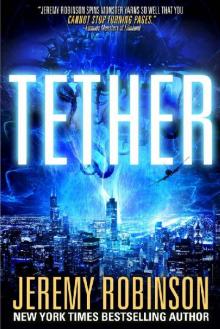 Tether
Tether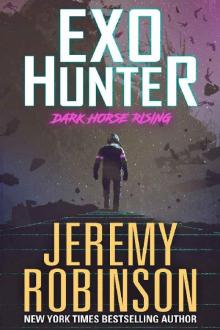 Exo-Hunter
Exo-Hunter Pulse
Pulse Cannibal
Cannibal Omega: A Jack Sigler Thriller cta-5
Omega: A Jack Sigler Thriller cta-5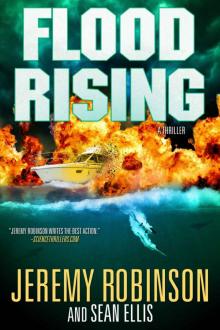 Flood Rising (A Jenna Flood Thriller)
Flood Rising (A Jenna Flood Thriller)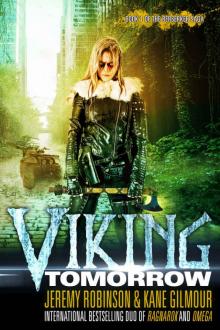 Viking Tomorrow
Viking Tomorrow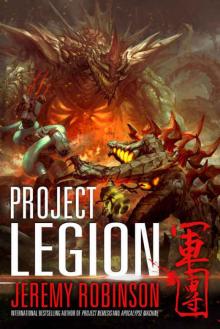 Project Legion (Nemesis Saga Book 5)
Project Legion (Nemesis Saga Book 5) BENEATH - A Novel
BENEATH - A Novel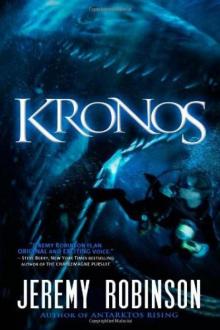 Kronos
Kronos SecondWorld
SecondWorld XOM-B
XOM-B Forbidden Island
Forbidden Island Project Maigo
Project Maigo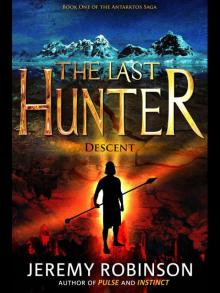 The Last Hunter - Descent (Book 1 of the Antarktos Saga)
The Last Hunter - Descent (Book 1 of the Antarktos Saga)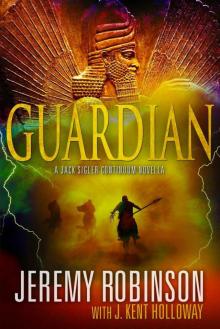 Jack Sigler Continuum 1: Guardian
Jack Sigler Continuum 1: Guardian Infinite
Infinite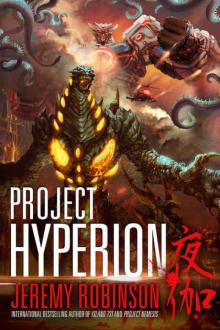 Project Hyperion
Project Hyperion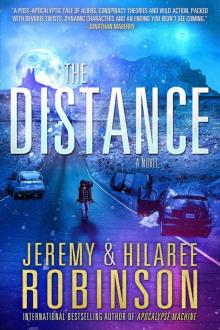 The Distance
The Distance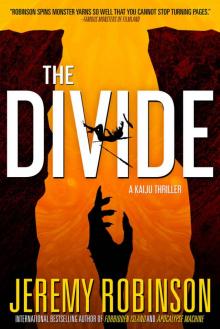 The Divide
The Divide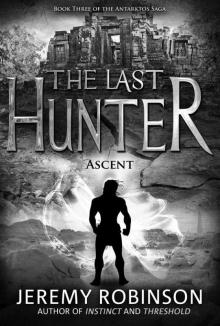 The Last Hunter - Ascent (Book 3 of the Antarktos Saga)
The Last Hunter - Ascent (Book 3 of the Antarktos Saga)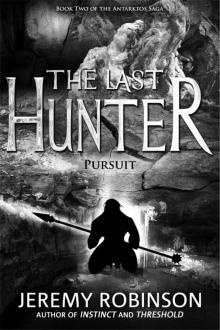 The Last Hunter - Pursuit (Book 2 of the Antarktos Saga)
The Last Hunter - Pursuit (Book 2 of the Antarktos Saga)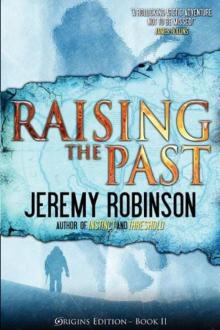 Raising the Past
Raising the Past The Others
The Others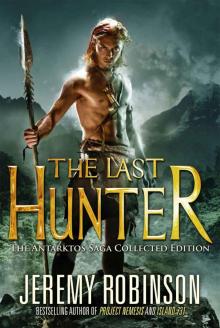 The Last Hunter - Collected Edition
The Last Hunter - Collected Edition Threshold
Threshold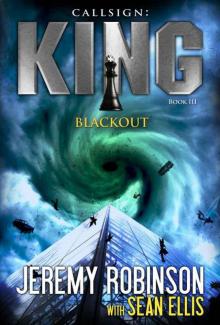 Blackout ck-3
Blackout ck-3 Antarktos Rising
Antarktos Rising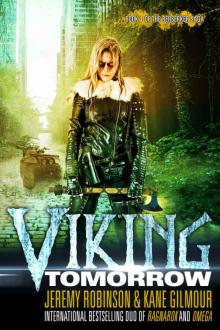 Viking Tomorrow (The Berserker Saga Book 1)
Viking Tomorrow (The Berserker Saga Book 1) The Didymus Contingency
The Didymus Contingency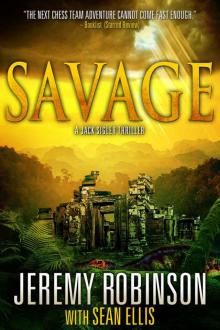 Savage (Jack Sigler / Chess Team)
Savage (Jack Sigler / Chess Team)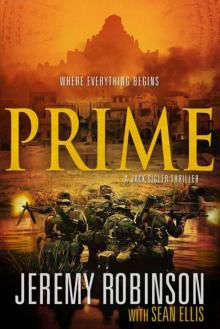 Prime
Prime Insomnia and Seven More Short Stories
Insomnia and Seven More Short Stories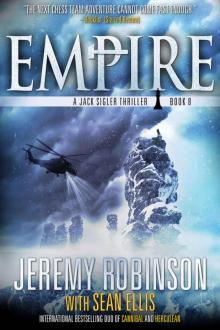 Empire (A Jack Sigler Thriller Book 8)
Empire (A Jack Sigler Thriller Book 8)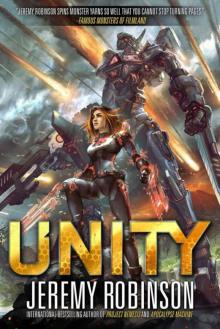 Unity
Unity Instinct
Instinct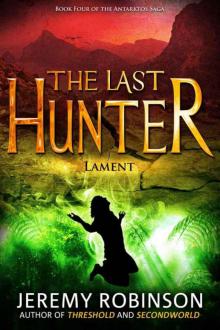 The Last Hunter - Lament (Book 4 of the Antarktos Saga)
The Last Hunter - Lament (Book 4 of the Antarktos Saga) MirrorWorld
MirrorWorld Herculean (Cerberus Group Book 1)
Herculean (Cerberus Group Book 1) Island 731
Island 731 Omega: A Jack Sigler Thriller
Omega: A Jack Sigler Thriller Patriot (A Jack Sigler Continuum Novella)
Patriot (A Jack Sigler Continuum Novella)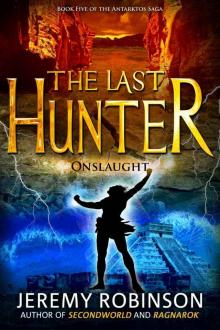 5 Onslaught
5 Onslaught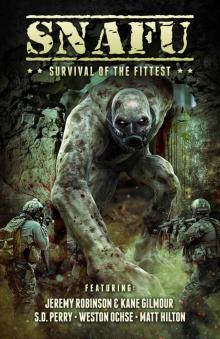 SNAFU: Survival of the Fittest
SNAFU: Survival of the Fittest Helios (Cerberus Group Book 2)
Helios (Cerberus Group Book 2)